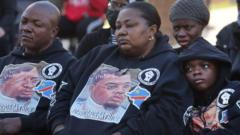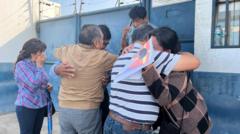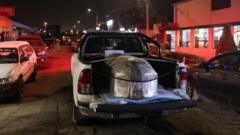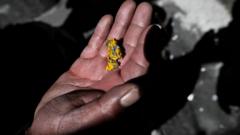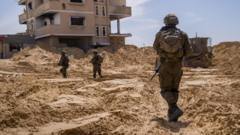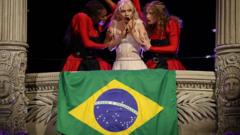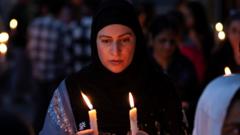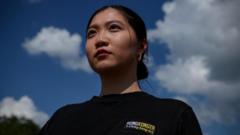As protests flare up across Turkey for the sixth consecutive day, President Recep Tayyip Erdogan has condemned the unrest, characterizing it as a "movement of violence" instigated by opposition parties. The turmoil began last Wednesday after Istanbul’s Mayor Ekrem Imamoglu, a prominent rival of Erdogan, was arrested on corruption charges, igniting widespread demonstrations.
Erdogan Denounces Ongoing Turkey Protests as 'Evil' Amid Continued Unrest
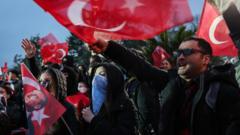
Erdogan Denounces Ongoing Turkey Protests as 'Evil' Amid Continued Unrest
Turkish President Erdogan attributes escalating protests to opposition provocations as demonstrations stretch into the sixth night, sparked by the arrest of Istanbul's mayor.
Thousands gathered in Istanbul on Monday night, amidst a heavy police presence, chanting against the government and waving Turkish flags. While Sunday saw violent clashes with riot police deploying tear gas and rubber bullets, Monday's protests were largely peaceful, with the government reporting over 1,100 arrests since the demonstrations began. Erdogan, speaking from Ankara, called the protests "evil" and accused opposition leaders of aggravating public disorder instead of addressing their legal concerns.
In a symbolic move, Imamoglu, despite being behind bars, was confirmed as the Republican People's Party's candidate for the 2028 presidential election, representing a significant challenge to Erdogan's two-decade rule. Imamoglu has labeled his charges as politically charged and has garnered support from crowds proclaiming their dissent against what they perceive as fascism. The recent demonstrations have drawn comparisons to the Gezi Park protests of 2013, marking the largest wave of civil disobedience in years.
Erdogan's accusations of judicial independence have spurred further debate on the legal integrity surrounding the arrests, as many citizens express their frustration with the current regime. Among the detained figures are politicians, journalists, and business leaders, all contributing to the charged political atmosphere.
As the situation develops, Turkey finds itself at a crossroads, with implications for the future of its politics and civil liberties.
In a symbolic move, Imamoglu, despite being behind bars, was confirmed as the Republican People's Party's candidate for the 2028 presidential election, representing a significant challenge to Erdogan's two-decade rule. Imamoglu has labeled his charges as politically charged and has garnered support from crowds proclaiming their dissent against what they perceive as fascism. The recent demonstrations have drawn comparisons to the Gezi Park protests of 2013, marking the largest wave of civil disobedience in years.
Erdogan's accusations of judicial independence have spurred further debate on the legal integrity surrounding the arrests, as many citizens express their frustration with the current regime. Among the detained figures are politicians, journalists, and business leaders, all contributing to the charged political atmosphere.
As the situation develops, Turkey finds itself at a crossroads, with implications for the future of its politics and civil liberties.


